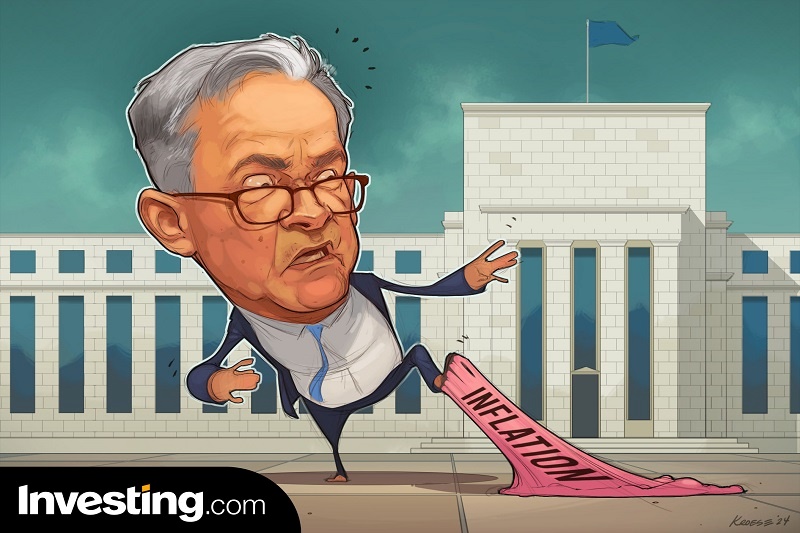Investing.com - On Wednesday, investors are awaiting one of the most important pieces of data that will shape the future of the Federal Reserve's interest rate policy: the Consumer Price Index (CPI) data for May.
The inflation report is scheduled to be released at 8:30 AM ET, ahead of the central bank's monetary policy decision at 2:00 PM. The report is expected to show a headline inflation rate of 3.4%, matching the annual increase in prices for April, according to expert estimates.
Consumer prices are expected to have risen by 0.1% last month, slowing from a 0.3% increase in April on a monthly basis. This would also be the smallest monthly increase since October 2023.
If you're looking to understand how inflation data and Federal Reserve decisions impact your investments, InvestingPro offers analytical tools and accurate reports to successfully guide your stock investments amid market volatility.
Get an additional discount on subscription through this link using the code SAPRO2.
According to Bank of America (NYSE:BAC), falling energy prices are likely to contribute further downward pressure on the headline CPI.
Economists at Bank of America wrote in a note to clients last week: "Energy prices likely declined in May on a seasonally adjusted basis due to lower gasoline prices, following increases in April and March. With crude oil prices down, gasoline prices are likely to continue falling in the near term."
For core inflation, which excludes the more volatile costs of food and energy, prices in May are expected to have risen by 3.5% year-over-year, a slight slowdown from the 3.6% annual increase seen in April, according to Investing Saudi data.
Core prices are also expected to have risen by 0.3% month-over-month in May, the same rate as recorded in April.
Inflation is moving in the right direction
Core inflation has remained significantly high due to rising costs of shelter and essential services such as insurance and medical care. But Bank of America expects those categories to "slow down."
Stephen Juno and Michael Gapen said, "Shelter inflation is likely to be slightly stronger this month due to higher away-from-home accommodation prices." "However, core services excluding shelter are expected to show some moderation with our expectation for less sharp increases in several service categories."
Over time, the economists said they "expect to see clearer progress in core services inflation," thanks to falling car insurance prices, rents, and owners' equivalent rents. Owners' equivalent rent is the hypothetical rent a homeowner would pay for the same property.
The Goldman Sachs (NYSE:GS) team, led by Jan Hatzius, agreed there would be more inflation slowdown this year, citing "rebalancing in the auto, rental housing, and labor markets."
Goldman Sachs (NYSE: GS) expects annual core CPI inflation of 3.5% and core Personal Consumption Expenditures (PCE) inflation of 2.8% in December 2024.
Cut or not to cut?
Inflation has remained high above the Federal Reserve's 2% annual target. Although this CPI report won't significantly impact the upcoming Fed decision, its timing has perhaps added more attention to its release.
Fed officials have described the path to 2% as "bumpy," while recent economic data has fueled the Fed's "higher rates for longer" narrative on the rate path.
On Friday, Labor Department data showed the job market added 272,000 non-farm jobs last month, much higher than the economists' expected 182,000 jobs. Wages also came in higher than estimates at 4.1%, although the unemployment rate rose slightly to 4% from 3.9%.
Notably, the Fed's preferred inflation gauge, the core PCE index, has remained significantly high. The annual change in the core PCE index, closely watched by the Fed, remained steady at 2.8% for April, matching March.
Bank of America said, "If the report matches our expectations, we will maintain our forecast that the Fed will cut rates once this year in December."
The analysts added, "We see it as unlikely that inflation data will be weak enough in the coming months to enable the Fed to cut rates before December."
Investors now expect a range of one to two 25 basis point rate cuts in 2024, down from six cuts expected at the beginning of the year, according to Bloomberg data.
